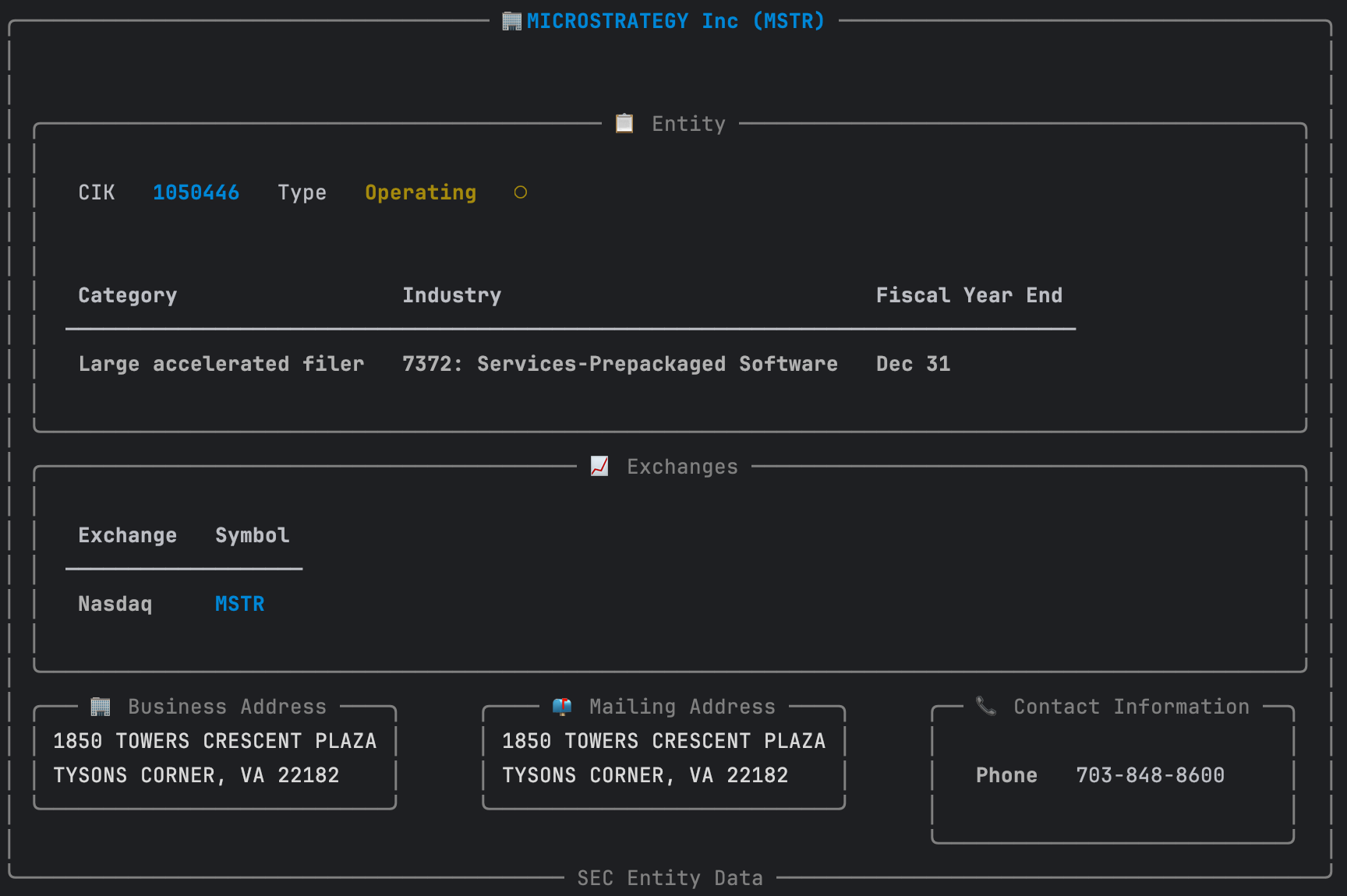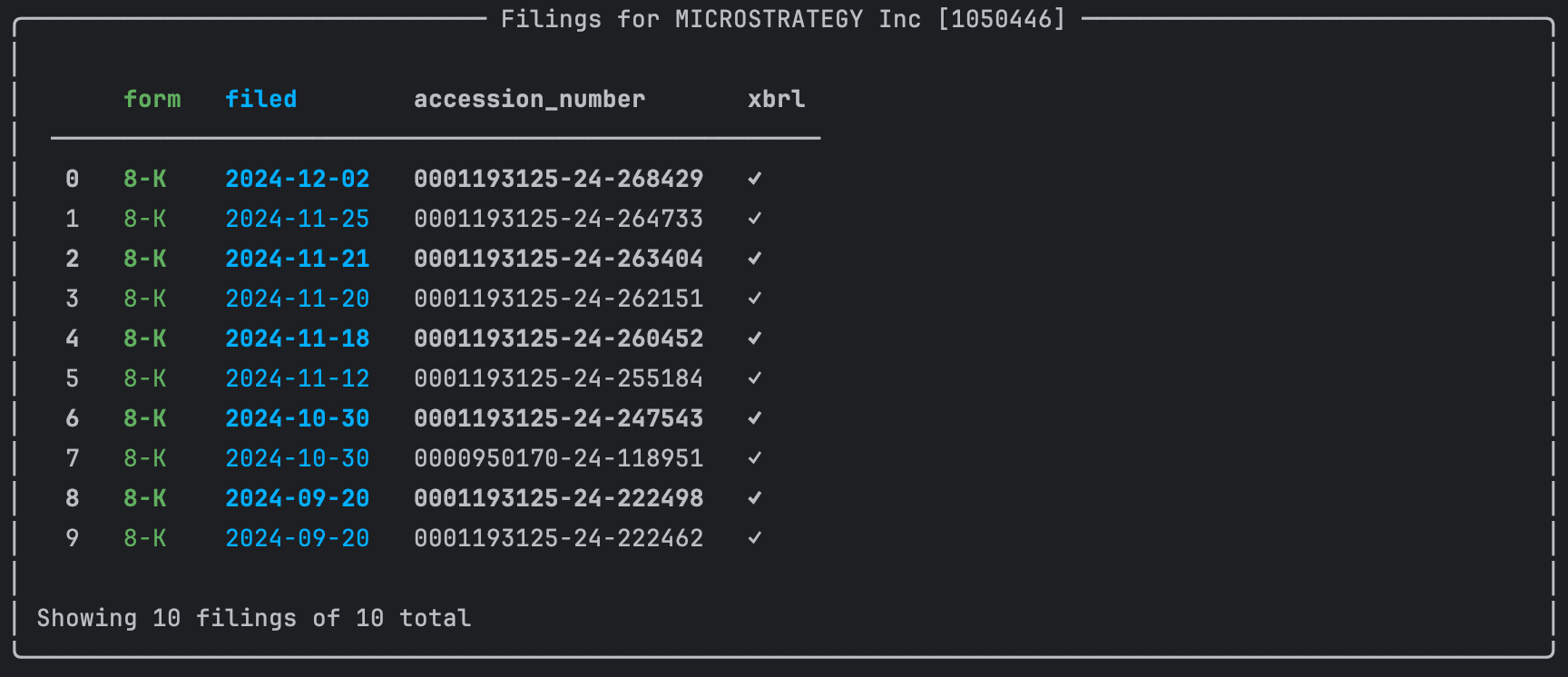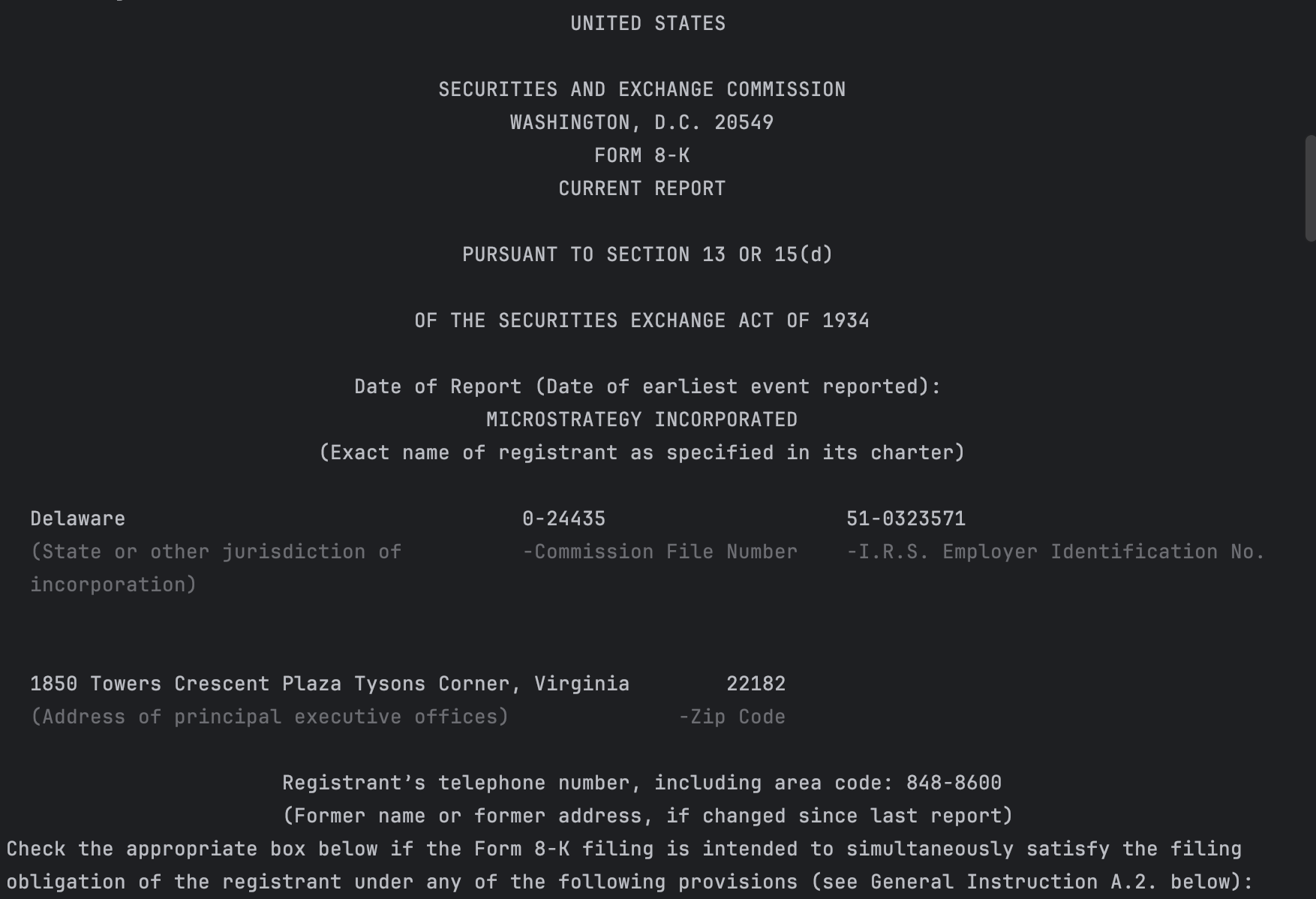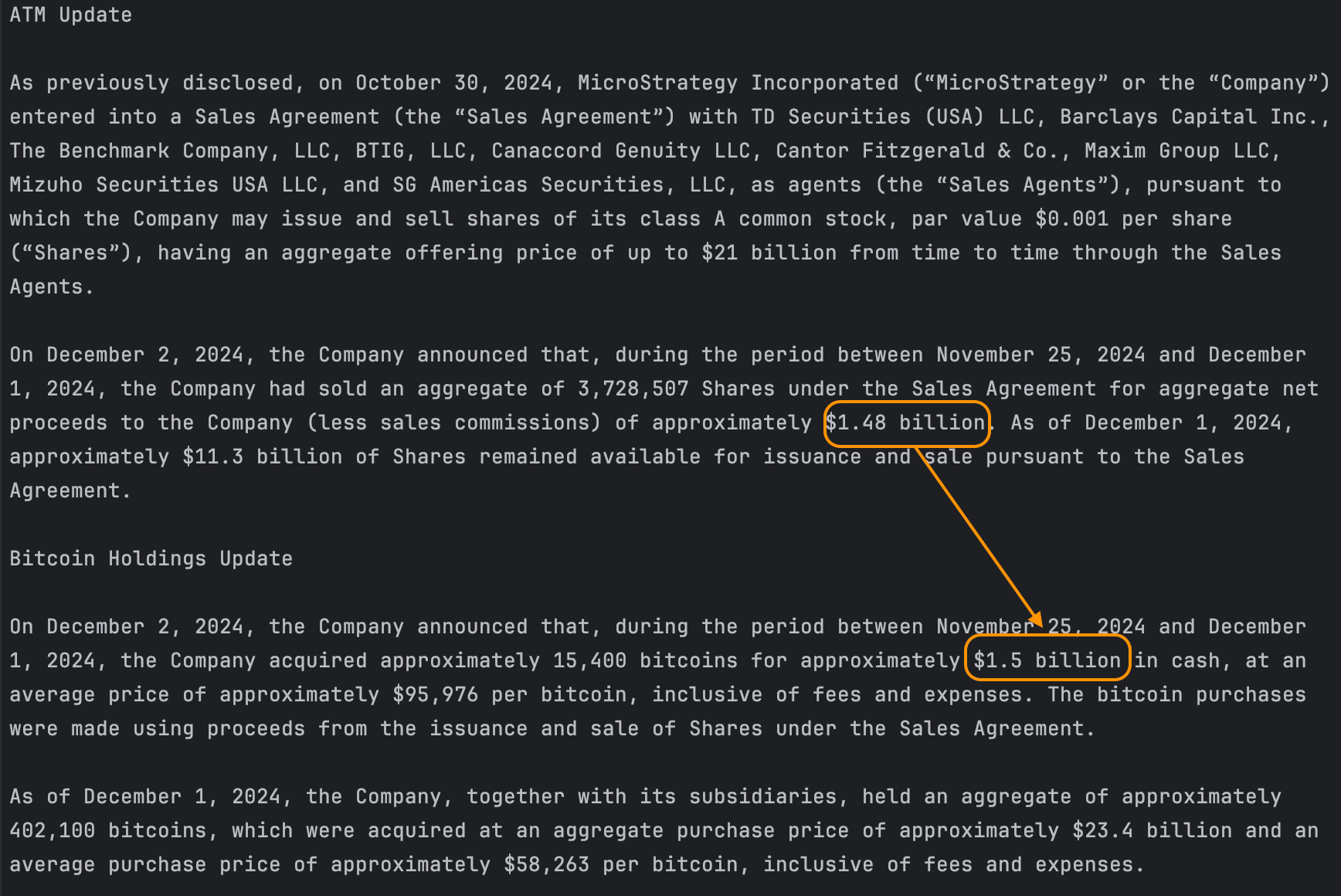From Software to Crypto: The MicroStrategy Playbook
Michael Saylor transformed his software company MicroStrategy in one of the largest holders of bitcoin in the world. Has he discovered the "infinite money glitch"?

Michael Saylor rewrote the rules of corporate finance when he transformed MicroStrategy (MSTR) from a modest enterprise software company into one of the world's largest Bitcoin holders. His unconventional strategy? Using the company's cash reserves and debt financing to bet big on cryptocurrency.
The pivotal moment came in August 2020, as COVID-19 rattled global markets. While other CEOs played defense, Saylor went on the offensive. He converted $250 million of MicroStrategy's cash into Bitcoin, arguing that holding dollars in an inflationary environment was like "sitting on a melting ice cube." This initial purchase was just the beginning.
Through aggressive accumulation, MicroStrategy has built one of the largest corporate Bitcoin treasuries globally, challenging traditional notions of corporate asset management. Saylor's bold move has sparked fierce debate in business circles, but it's undeniably reshaped how companies think about digital assets on their balance sheets.
The infinite money glitch
Some people call MicroStrategy's Bitcoin strategy the "Infinite Money Glitch" because it appears to exploit market inefficiencies to generate seemingly limitless profits.
●Low-interest debt: MicroStrategy takes advantage of low interest rates on bonds to borrow large sums of money.The interest rates they secure are significantly lower than the average annual return on Bitcoin.
●Bitcoin Appreciation: The strategy hinges on the assumption that Bitcoin's value will continue to appreciate over time.
●Stock Premium: Because of its large Bitcoin holdings, MicroStrategy's stock trades at a premium. This premium allows them to sell shares at an inflated price.
●The "Glitch": MicroStrategy uses the proceeds from the stock sales to buy even more Bitcoin. This increases the company's Bitcoin holdings per share, further driving up the stock premium and allowing them to repeat the process.
Essentially, MicroStrategy appears to create a self-perpetuating cycle: they borrow cheaply, buy Bitcoin, their stock price rises, they sell shares, buy more Bitcoin, and so on. This cycle creates the illusion of generating money from thin air, hence the term "Infinite Money Glitch."
Has he found a hole in infinity?
Probably not. There are a few risks
●Bitcoin Dependence: The entire strategy depends on Bitcoin's continued appreciation. If Bitcoin's price were to fall significantly, the company would face massive losses.
●Interest Rate Hikes: While MicroStrategy has secured fixed interest rates on its bonds, future interest rate increases could affect the value of those bonds and potentially make it more difficult for them to continue borrowing at favorable rates.
●Sustainability: It is unclear whether MicroStrategy can maintain this strategy indefinitely. Skeptics question its long-term viability.
Tracking the company's SEC filings
Regardless of where you stand, for the moment Microtrategy is printing money at least for now. It's worth following the company's actions to see what happens - it may end in spectacular failure or spectacular in the other direction.
c = Company("MSTR")
c
filings = c.latest("8-K", 10)
filings
Viewing the latest filing
I've been trying to change how filings are rendered in the terminal in edgartools. It's really hard - essentially I've had to write a browser, and possible only because I lean heavily on Claude Sonnet.
filings[0].view()
In one week the company sold $1.5 billion of shares and converted that to bitcoin. This is a company with revenue of $400 million per annum

Conclusion
Microstrategy on paper is a software company, but it's clearly now not a normally company. And since its revenue reported in September 2024 declined by 10% YoY it's may not even think of itself as a software company anymore. It's become something else - a portal where one form of money gets transformed into another. But it's still a public company and still reporting filings, so it is interesting and hopefully profitable to follow the company and learn how entrepreneurs can unlock new avenues for growth, wealth creation, and industry disruption